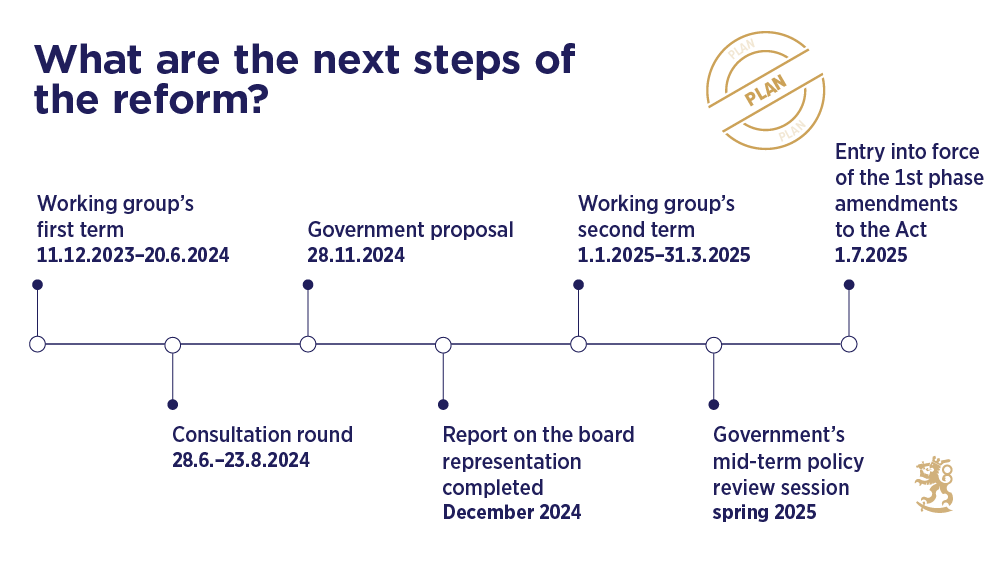Government proposes changes to Cooperation Act – Aim is to reduce administrative burden on small companies

On 28 November 2024, the Government submitted to Parliament a proposal for amendments to the Act on Co-operation within Undertakings to raise the threshold for applying the Act and shorten the duration of change negotiations.
“Following the reform, companies will be able to react to changing situations more quickly, and the administrative burden on small companies will be reduced. We aim to remove barriers to employing workers, and to improve the business environment,” says Minister of Employment Arto Satonen.
The Government proposes that the amended legislation would enter into force on 1 July 2025.
Threshold for applying the Act will be raised to cover companies with at least 50 employees
The Act on Co-operation within Undertakings (the Co-operation Act) currently applies to companies, corporations and branches that regularly employ at least 20 people. The Government proposes that the threshold for applying the Act be raised so that in future it would apply to entities employing at least 50 employees. However, the Act would lay down certain obligations for employers that regularly employ 20−49 people.
The practice of continuous dialogue would be maintained in companies or corporations regularly employing 20−49 people. However, the procedures pertaining to the dialogue would be lightened significantly.
In future, employers that regularly employ 20−49 people in an employment relationship would be required to hold change negotiations only in situations where the employer is considering measures to reduce the number of at least 20 employees over a 90−day period. However, any lay-offs considered by the employer that would be based on a temporary reduction of work or the employer’s ability to offer work (lay-offs lasting a maximum of 90 days) would not require change negotiations.
The provisions on the transfer, merger and division of business would continue to apply to all companies, corporations and branches that regularly employ at least 20 people.
Minimum duration of change negotiations will be cut by half
The Co-operation Act lays down provisions on the duration of change negotiations concerning the reduction of workforce. At present, change negotiations must last at least six weeks or 14 days, depending on their subject.
The negotiation times would be reduced by half. The amendment would apply to all companies, corporations and branches within the scope of application of the Act. The minimum duration of the change negotiations would be either three weeks or seven days, depending on the matters to be negotiated and the number of employees at the company or organisation.
The Act would lay down a new provision concerning the time reserved for examining the availability of employment services. The time would be applied if the employer submitted a proposal for negotiations concerning its plan to terminate at least ten employees on production-related and financial reasons. The employment contract of a terminated employee could not end before 30 days have elapsed from the date a proposal for negotiations was submitted to the employment authority.
Amendments to the Co-operation Act will be implemented in two phases
The first phase of the legislative project will implement the Government Programme’s entries on raising the threshold for applying the Co-operation Act and reducing the minimum duration of change negotiations by half. It will be evaluated in the second phase of the project whether the board representation of employees should be amended.
A tripartite working group discussed the matters related to the scope of application and the duration of the change negotiations during its first term of office on 11 December 2023–20 June 2024. The working group did not reach a unanimous decision during its work. The Ministry of Economic Affairs and Employment circulated the report of the working group for comments from 28 June to 23 August 2024.
Inquiries:
Jaakko Aromaa, Special Adviser to the Minister of Employment, tel. +358 295 047 110
Nico Steiner, Senior Ministerial Adviser, Ministry of Economic Affairs and Employment, tel. +358 295 049 001

More information on amending the Act on Co-operation within Undertakings